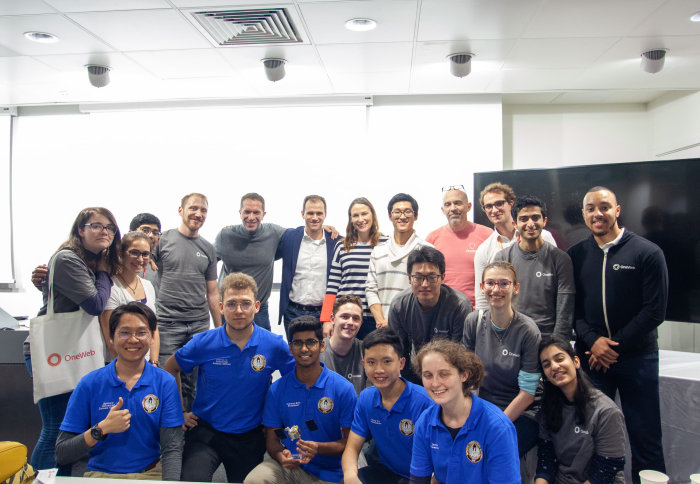AeroSoc Hold First Ever Hackathon Event: SpaceHack
by Tom Creese

SpaceHack 2019
Imperial’s AeroSoc has held its first-ever hackathon, SpaceHack, where students applied their skills to solve Space industry problems.
The unique event, sponsored by the Satellite Communications company OneWeb and the Royal Aeronautical Society, encouraged participants to devise innovative solutions to real-world challenges currently facing the Space industry.
With over 90 people attending, the event was open to students from all Universities, with Imperial College undergraduates competing alongside students from King's College, UCL and Cambridge.
Over twenty teams competed in total, with a maximum of six people in each team. Technical representatives from OneWeb were on hand to assist and offer advice throughout the day.
Cut to the Space
Typically in Hackathons, teams compete to find solutions through intensive coding exercises.
Jawwad Adel, President of AeroSoc, explains “we made it clear that no coding experience was necessary.”
“With this hackathon, the emphasis was on creative rather than technical solutions to Space problems. That meant people could have fun, think outside the box, and keep it ideas-focussed.”
The problems posed were varied in nature. Some focussed on the Operations side (like removing the need for manual input in satellite operations) others concerned Business and Commercial considerations (for instance, looking at how satellite connectivity might unlock new business solutions) or Responsible Space (such as ensuring that no traces of satellites remain in orbit during their mission lifetime).
SpaceHack not only tested participants’ inventiveness, but their presentation skills too. With just under seven hours to develop solutions, teams then pitched their ideas to a panel of judges, which included OneWeb’s Chief Commercial Officer and their Senior Director of Technology Strategy and Partnerships.
Web design
The winning team tackled the problem of Space Debris. They conceived of a 'SPIDERMAN': a ‘SPace Instrument for DEbris Removal and MANoeuvring’, that deploys a net and magnetic weights to capture inactive satellites.

For the same problem, one of the runner-up teams suggested a Garbage Collector: a crash absorbent structure that cleans up small debris particles in space before deorbiting.
The other runner-up team suggested how satellite communications could help make up for the global shortfall of surgical procedures by promoting the expansion of remote surgery.
Isobel Owens, AeroSoc’s Treasurer says “One of the best things about the day was that people really believed in their ideas.”
Isobel adds “For us, it was such a rewarding event, following months of preparation and hard work. All the feedback we received recognised just how much the event was a feat of organisation.”

The event was the first ever hackathon organised by AeroSoc, and had been a key pledge in Jawwad’s Election manifesto when running for President last year.
Looking ahead to 2020, the Committee are planning career talks every week, Alumni networking events and a dedicated Space Week.
Article text (excluding photos or graphics) © Imperial College London.
Photos and graphics subject to third party copyright used with permission or © Imperial College London.
Reporter
Tom Creese
Department of Aeronautics